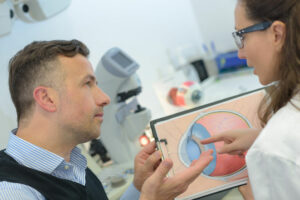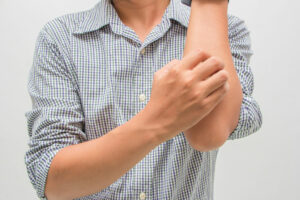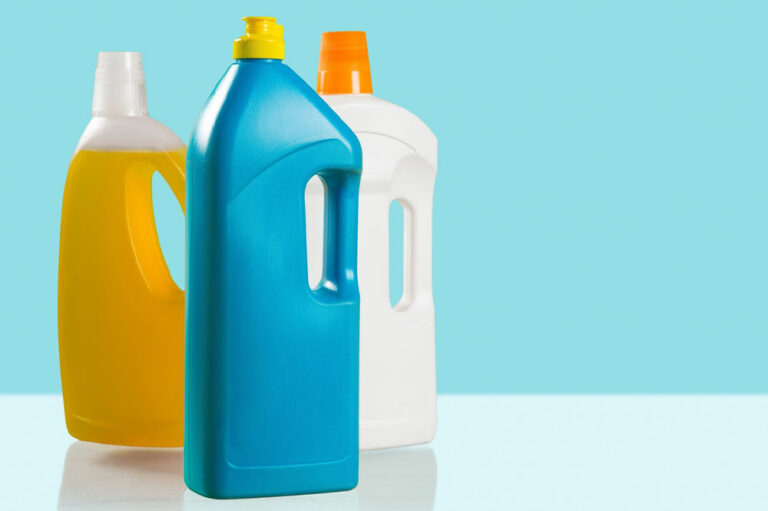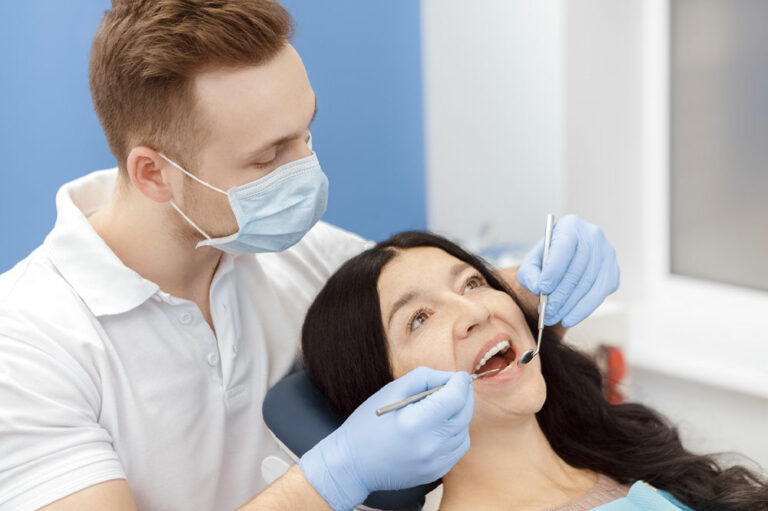Atopic dermatitis (or eczema) is a skin disease that can cause constant itching or redness. An estimated 31.6 million people in the country are said to be living with some form of eczema. Multiple factors play a role in the development of atopic dermatitis. Although not contagious, it is a chronic condition, so one can experience multiple flare-ups during their lifetime. The condition is common among children, but it can also affect adults.
Symptoms
The skin disease may develop anywhere on the body, and its signs can differ from one person to the next. The condition often surfaces before age 5, and its symptoms can last well into one’s teen and adult years. Some individuals may even experience flare-ups that clear up for a few days, months, or years. The most common symptoms of eczema are
Pruritus or itchiness
Rashes or swollen skin, which can differ in appearance based on the color of the skin
Dry or cracked skin
Thickened skin
Crusted, scaly patches
Oozing skin discharge
Raw, sensitive skin due to scratching
Tiny bumps
Darkening of the skin around the eyes
Causes and triggers
The exact cause of atopic dermatitis is yet to be determined. But the skin disease could result from genetic mutations that affect the skin’s ability to protect itself. A weak barrier results in the skin being unable to hold on to moisture. Further, the phenomenon also exposes the skin to invaders like allergens and irritants. Some people may develop atopic dermatitis by being infected with the bacteria Staphylococcus aureus. Weak skin barriers are also susceptible to immune system responses that result in inflamed skin or other eczema symptoms. Sometimes one may not experience symptoms for years but develop a rash or itchy skin out of the blue. This can be caused by exposure to certain triggers of atopic dermatitis, which may also worsen pre-existing symptoms. A few common triggers for eczema are:
Some kinds of fabric, including itchy materials like wool
Animal dander
Irritants in skincare products, makeup, and perfumes
Certain food allergens such as dairy products, eggs, wheat, nuts, and soy
Strong soaps and detergents
Pollen and mold
Emotional factors like stress and anger
Dry winter air or regions with low humidity
Taking extremely hot and long showers
Dry skin
Skin infections
Certain hormones can trigger the condition
Exposure to dust or sand
Sweat
Management options and tips
A permanent cure for atopic dermatitis is still in the works, so a healthcare expert may recommend certain treatment options to manage the symptoms. Topical options like creams or ointments might be prescribed for mild symptoms of the condition, while prescription options can be recommended for severe cases. Other treatment options can control itching or deal with bacterial infections. Biologics, light therapy, skin creams, and wet dressings may also be required based on the severity of the symptoms. A healthcare expert may also recommend a few lifestyle changes to relieve the symptoms and manage eczema. A few simple changes are:
Moisturize the skin twice a day: One can choose from different moisturizers available in stores, including creams, shea butter, ointments, and body lotions. These products can seal moisture throughout the day, benefiting the skin. A suitable moisturizer for the skin is affordable, unscented, and safe. Those with eczema should speak to healthcare experts about the best option for their skin. For babies, one should consider using petroleum jelly to prevent triggering atopic dermatitis symptoms.
Avoid long showers: The amount of time one spends bathing or showering and the temperature of the water can also have a massive impact on the texture of their skin. So, those with atopic dermatitis should have only warm water showers. They should also limit the time they spend showering or bathing to about 10 minutes.
Use gentle soaps: Soaps are loaded with ingredients that can be harmful to eczema-prone skin. So, people with skin diseases must pick soaps that are free of dyes and fragrances. One can use warm water for bathing kids without the bubble bath or soap. Further, one should avoid deodorant and antibacterial soaps as they tend to get rid of the skin’s natural oils, leaving the skin dry and susceptible to symptoms of atopic dermatitis.
Pat dry after showering: Following a shower, one must pat dry their skin with a soft towel. Vigorously rubbing a towel can cause rashes or other symptoms of skin disease. One should also apply moisturizer, preferably within three minutes of getting out of the shower when the skin is damp. Further, during baths, one should avoid scrubbing with a loofah or washcloth to avoid irritating the skin.
Wear skin-friendly clothing: People with skin diseases who regularly wear tight outfits can be susceptible to eczema flare-ups. So, one must wear loose clothing to give the skin enough room to breathe. Also, before donning a new outfit, one should wash the clothes to remove any irritants that can trigger atopic dermatitis symptoms. Additionally, one should use a detergent that is free from dyes and fragrances to prevent flare-ups.
Avoid scratching the skin: As eczema results in itchy skin, one can end up scratching the skin to get rid of the itch. However, this will only aggravate the symptoms. Instead, one should apply pressure on the itchy areas and trim their nails to reduce the risk of flare-ups if they end up scratching the skin. Children should wear gloves at night so they do not accidentally scratch the affected areas in their sleep.
Keep the body cool at night: The warmer the body is while sleeping, the more prone they are to flare-ups of eczema symptoms. So, one should use all-cotton sheets to control body heat and prevent itching when one is asleep. One should also choose all-cotton sheets with a higher thread count, as such material remains smooth for a longer period.
In addition to the above-mentioned tips, one should avoid prickly surfaces to prevent skin irritation. If a surface is rough, they can place a towel or blanket before sitting down.

















